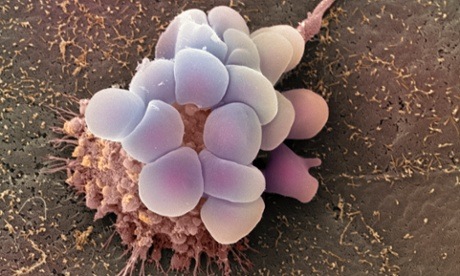
A team of international scientists have identified six genes that increase a woman’s likelihood of developing ovarian cancer.
The discovery by Brisbane’s Berghofer Medical Research Institute and the University of Cambridge could help researchers find new ways to treat and possibly prevent the disease.
An Australian woman’s risk of getting ovarian cancer during her lifetime is about one in 100. The cancer has been referred to as a silent killer because many times it is not detected until it is at an advanced stage.
“The problem is that the most lethal form seems to be the most difficult to detect,” said the head of the institute’s cancer program, Professor Georgia Chenevix-Trench. “It seems to rise very quickly and give you a very narrow window of opportunity to make the diagnosis before it spreads.”
A woman’s lifetime risk of developing breast or ovarian cancer is greatly increased if she inherits a harmful mutation in the BRCA1 or BRCA2 genes.
The six new variants, or “typos”, identified have a more subtle impact than the BRCA1 and BRCA2 mutations, according to Chenevix-Trench. “Individually, each of these typos increases the risk of cancer by a very small amount,” she said.
“However, if a woman carries a large number of these typos her risk of developing ovarian cancer may be as high as that conferred by mutations in BRCA1 or 2.”
The actor Angelina Jolie has had a double mastectomy because she has the faulty BRCA1 gene.
“This finding would be particularly relevant to people like Angelina Jolie because in time we should be able to give much more precise estimates of what their ovarian cancer is and that should help them decide when they want to have prophylactic surgery, if at all.”
